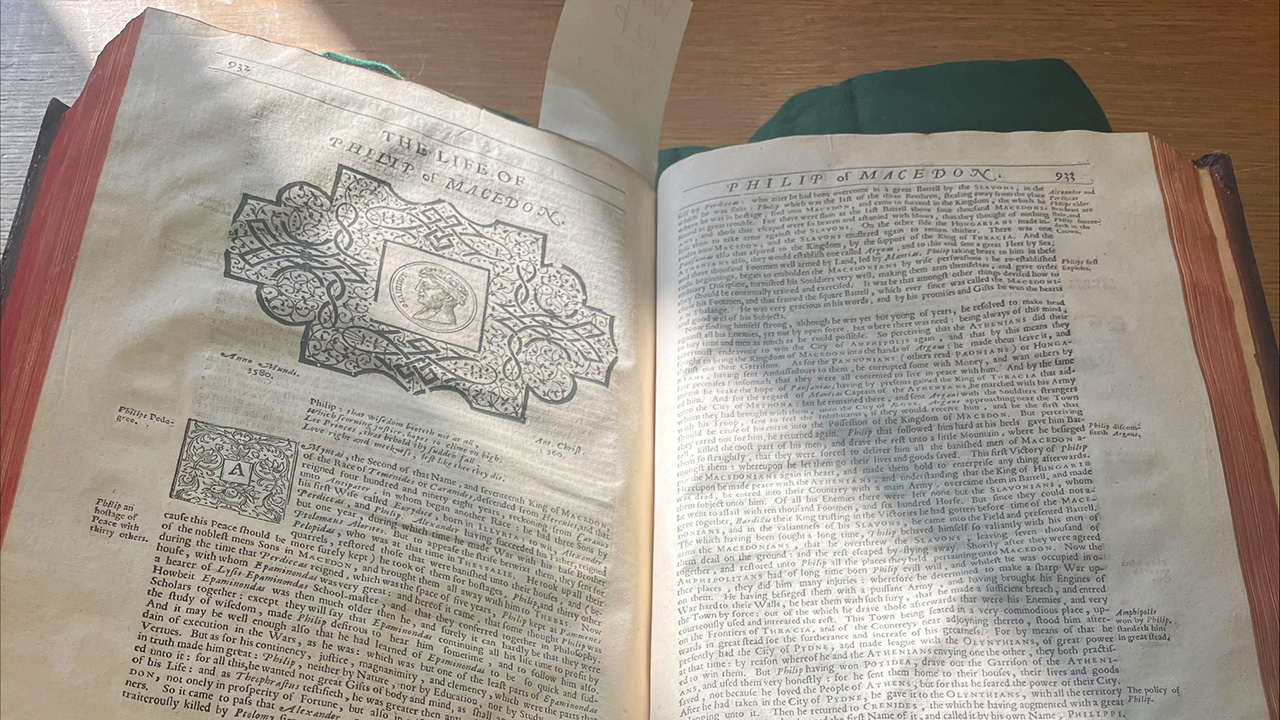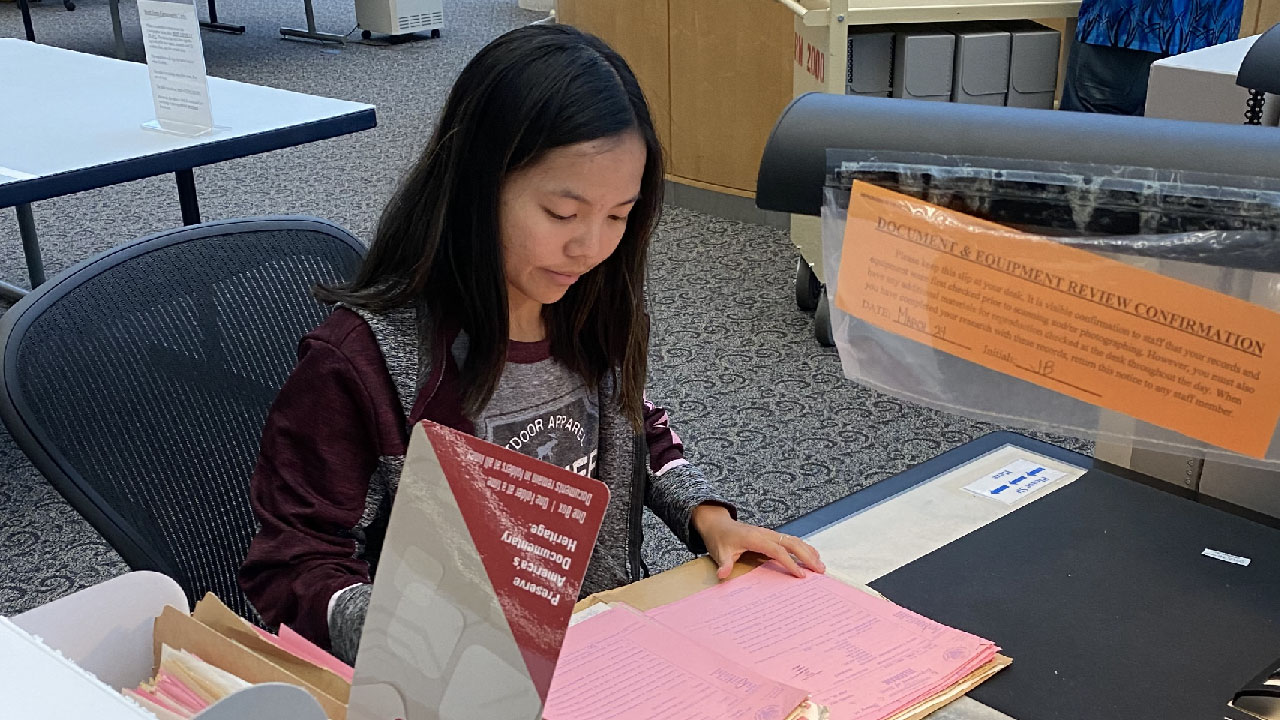
Heading out on the open road to uncover hidden stories from the past, two Winona State University history students decided to take a different route than normal this spring for completing their senior capstone.
Fulfilling their graduation requirement to write an original research paper using primary resources, students Maxwell Miller and Jessica Chacich used grant money to dive into the life of Alexander the Great, as well as the impact of U.S. government action on an ousted Chilean president.
Both students had won competitive grants from WSU’s Undergraduate Research and Creative Projects program which they used to fund their visit to archives across the United States.
As a part of Miller’s capstone project, he wanted to explore the underlying brutality of Alexander the Great.
[Alexander the Great] is often referred to as one of the greatest generals to ever live. However, I believe his ‘dark side’ is often overlooked due to his achievements.
Testing his hypothesis, Miller spent one week in Chicago, IL. at the Newberry Library Archives, where he worked with world-class archivists and gained access to manuscripts written almost 500 years ago.
These documents gave him a whole new perspective on Alexander the Great.
Reflecting on this experience, Miller explained, “The coolest thing about going on this trip would have to be that I was finally able to research as a true historian would.”

Like Miller, Chacich also had an impactful experience.
Her capstone project focused on how U.S. government covert actions during the Nixon administration and domestic factors in Chile played a role in the 1973 coup that ousted democratically elected Chilean President Salvador Allende.
Spending a week in Washington, D.C., at the National Archives and National Security Archives, she uncovered previously confidential memos between the CIA, the U.S. State Department, and even Richard Nixon.
The coolest documents were telegrams from Edward Korry, U.S. Ambassador to Chile, to the White House. These telegrams gave insight into his reactions to socialist candidate Salvador Allende winning the Chilean presidential election.
Thanks to this trip experience, Chacich gained insight into the U.S. government’s motivations for its covert actions and interference in Chilean domestic affairs.
“Jessica and Max showed initiative and persistence in finding sources, writing (and rewriting) their grant proposals, and undertaking successful research trips,” said Juandrea Bates, a history and legal studies professor at WSU. “Their drive and dedication to the historian’s craft is an inspiration to their peers and a real source of joy for the department faculty.”
Bates hopes that future students will follow in Miller and Chacich’s footsteps, so that they, too, can have a chance to travel and gain first-hand archival experience.
